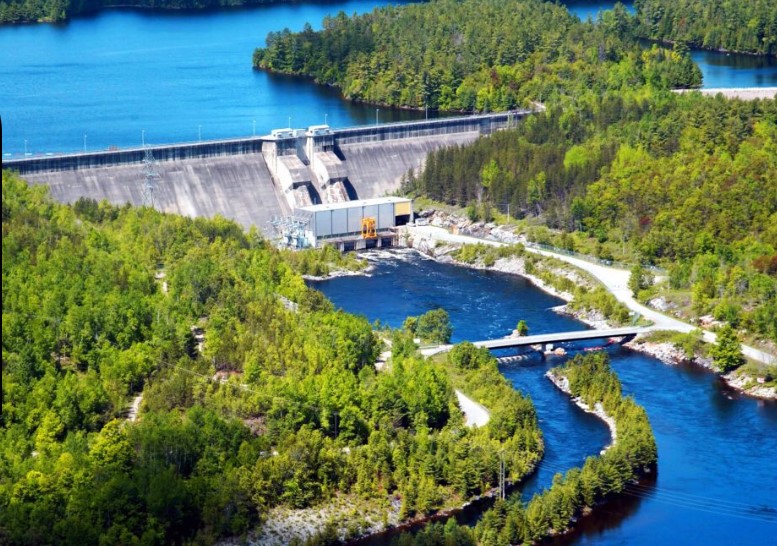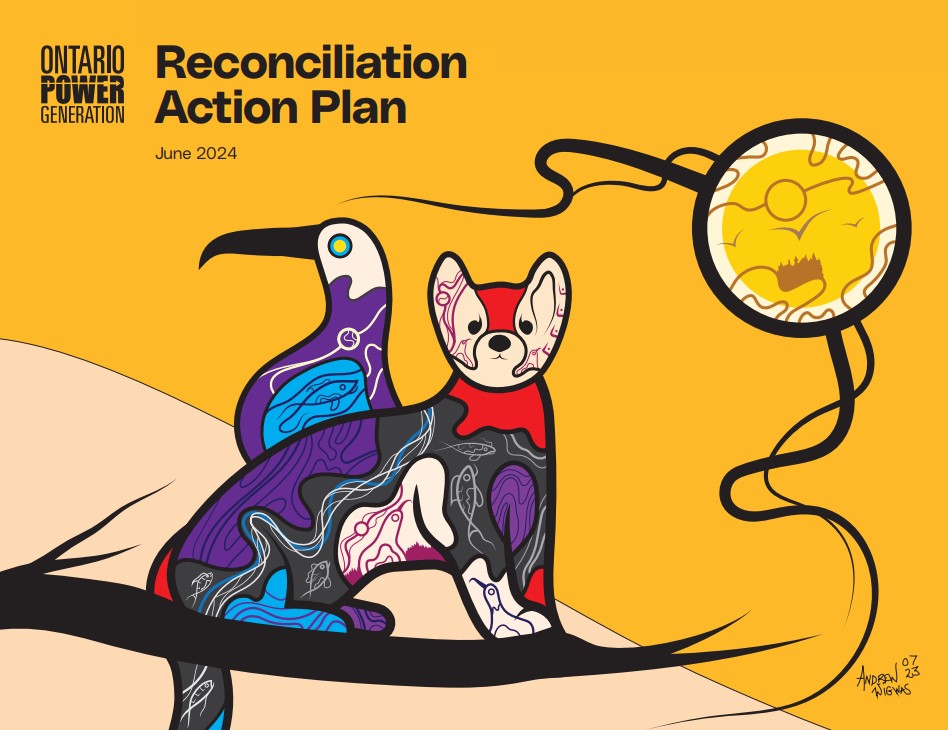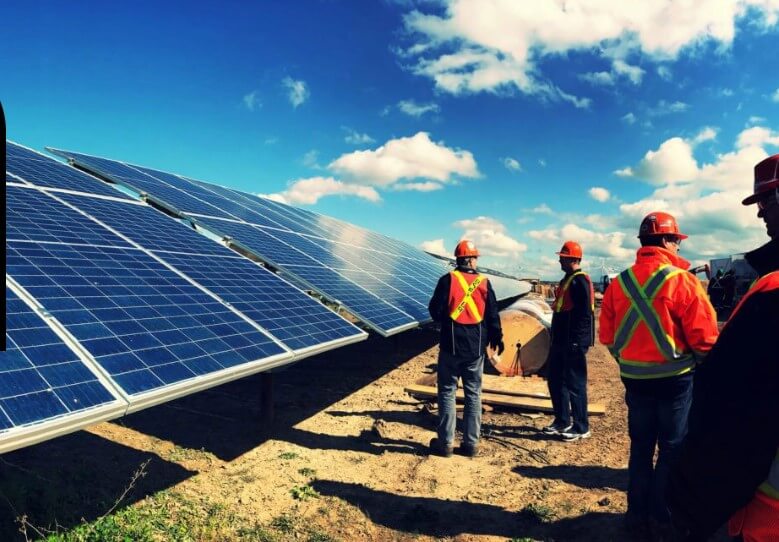Ontario Power Generation Inc. (OPG) is one of North America’s largest clean energy producers. The company – a commercial entity with one shareholder, the Province of Ontario - generates roughly half of Ontario’s electricity from a combination of nuclear, hydro, solar, biomass and natural gas. OPG’s energy-producing facilities are all located on the treaty lands and traditional territories of Indigenous Peoples across the province of Ontario. In 2021, OPG developed its first Reconciliation Action Plan in consultation with First Nations communities, which provides a road map for how OPG intends to work in partnership with Indigenous communities, businesses, and organizations to advance Reconciliation.
Background

Ontario Power Generation owns and operates 66 hydroelectric facilities, two nuclear power plants, two thermal generating stations and one solar facility in Ontario. For more than a century, the company and its predecessors have produced essential electricity for the province, while operating on the treaty lands and traditional territories of Indigenous Peoples. While there have been many positives to come out of this long legacy, the company recognizes the impacts its operations have had on Indigenous Peoples and their lands for generations. OPG accepted this responsibility and committed to seeking meaningful ways to demonstrate reconciliation.
Challenges
To move forward in building respectful relationships with Indigenous communities, OPG had to first look at its past. This meant acknowledging that hydroelectric development over the better part of the 20th century had significant adverse impacts on many Indigenous communities in Ontario.
In 1992, the company developed a formal framework to assess and resolve historic grievances, largely related to the flooding of First Nation reserve lands. This involved many challenging conversations; but more than anything, the framework required OPG leadership to listen, learn and understand the truth about the company’s history and impact. OPG’s first Indigenous Relations Policy was developed in 2007 and set out objectives for respecting the rights and interests of Indigenous communities. It established rules for developing and maintaining mutually beneficial relationships and partnerships, and created pathways to provide capacity-building support, including employment and business contracting opportunities.
Solutions

In October 2021, OPG released its first Reconciliation Action Plan (RAP), responding to the Truth and Reconciliation Commission’s Call to Action No. 92, which urges corporate Canada to apply a reconciliation framework in business activities. The Action Plan serves as a road map for how the organization intends to continue engaging and working with Indigenous communities, businesses, and organizations to advance reconciliation. It outlines the overall goals and the supporting actions OPG will take in five key areas:
- Leadership: Commit to reconciliation as a journey and track progress with metrics and targets around commitments.
- Relationships: Build positive and mutually beneficial relationships with Indigenous communities and peoples based on respect and understanding.
- People: Create an engaged and inclusive workforce that reflects the broad diversity of Indigenous communities and people across OPG.
- Economic Empowerment: Advance economic reconciliation with Indigenous communities and businesses through meaningful engagement, collaboration and partnership.
- Environmental Stewardship: Be a trusted partner in environmental stewardship and an ally in addressing climate change.
The Plan also commits to increasing the participation of Indigenous businesses in major projects and partnering on new projects that will continue to provide stable revenue streams for the community for years to come. OPG committed to creating $1 billion worth of economic impact for Indigenous communities and businesses over 10 years, through ongoing operations, projects and initiatives.
Results
OPG has completed equity partnerships with five First Nation communities on four new generation projects, including a solar facility built on the former grounds of one of North America’s largest coal stations.

As a result of the formal framework that OPG developed to assess and resolve historic grievances, the company reached final settlement agreements and delivered formal apologies to 21 First Nation communities through a respectful, non-adversarial and community-based process.
OPG has involved all its employees in this journey by providing training on Indigenous relations and by building awareness of the company’s responsibility to work for the greater good of the province and all its residents.
In 2021, OPG received Gold Certification through the Canadian Council for Aboriginal Business’ Progressive Aboriginal Relations (PAR) program. PAR Gold companies demonstrate sustained leadership in Indigenous relations and commitment to working with Aboriginal businesses and communities, through innovative programs and engagement.
Proactively engaging in reconciliation helps businesses navigate regulatory requirements and avoid conflicts related to land use and resource development. Sustainable partnerships with Indigenous communities provide stable revenue streams and long-term economic benefits. Integrating Indigenous knowledge and perspectives enriches corporate culture, fostering a more inclusive and holistic approach to business practices.
"OPG knows that to advance meaningful Reconciliation, we must engage, partner and collaborate with the Indigenous communities on whose treaty lands and traditional territories we operate. We remain committed to listening to, learning from, and building relationships with these communities to progress in this journey."
Nicolle Butcher, OPG President and CEO
Refer to the National Indigenous Economic Strategy for guidance on developing a reconciliation action plan within your organizational practices.